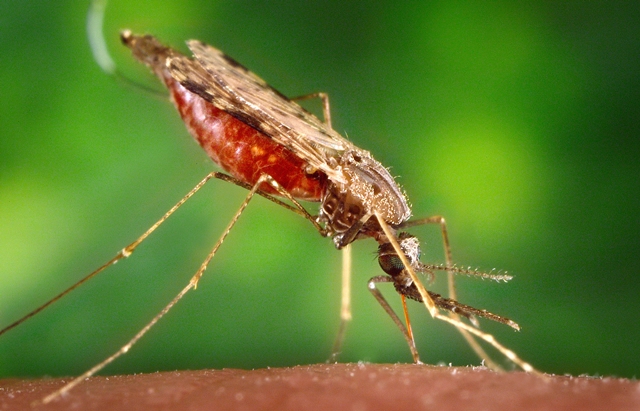20 June 2018. A company that applies genetic engineering to limit the spread of disease-carrying pests is partnering with the Bill and Melinda Gates Foundation to develop mosquitoes that stop the spread of malaria. Financial aspects of the agreement between Oxitec Ltd in Cambridge, U.K. and the Gates Foundation in Seattle were not disclosed.
Malaria, according to World Health Organization, affected 216 million people in 2016, which extracts heavy social and economic burdens in developing countries. In 2016, some 445,000 people died from malaria, of which 90 percent were in sub-Sahara Africa. Children under the age of 5 are particularly susceptible to the disease. The disease is caused by infections from the plasmodium parasite transmitted by mosquitoes. In humans, the parasite multiplies in the liver, then infects red blood cells. Symptoms, including headache, fever, and vomiting, occur 10 to 15 days following transmission from a mosquito bite.
Oxitec, a subsidiary of the synthetic biology company Intrexon Corp., is developing a new strain of Anopheles mosquito to limit the spread of wild parasite-carrying mosquitoes in the Western Hemisphere. With funding from the Gates Foundation, this new strain of Anopheles mosquito will adapt the company’s Friendly technology that uses genetic engineering techniques to insert a gene in males of the species. When released into the wild, the engineered males mate with females and produce female offspring that die before becoming adults, and thus are prevented from having offspring. Female mosquitoes are also the ones that bite and spread disease.
Oxitec designed and delivered similarly engineered Aedes aegypti mosquitoes to head off outbreaks of diseases spread by pathogens, notably Zika, chikungunya, and dengue viruses, carried by that species. This project will produce the company’s first Anopheles strain, specifically Anopheles albimanus mosquitoes, among the main carriers of malaria parasites in the Caribbean, and Central and South America. Oxitec says the new strain will be one of its second-generation of engineered non-biting male mosquitoes that pass along the self-limiting traits over 10 generations, before no longer persisting in the environment.
Controlling malaria is one of the Gates Foundation’s top priorities, and while the disease is diminishing in some parts of the world, it continues in other regions. One of the foundation’s strategies for ending malaria is better control of vectors, or disease carriers. Philip Welkhoff, director of the Gates Foundation’s malaria program says in an Oxitec statement, “Successful burden reduction and elimination will require a range of technologies for different geographies and challenges. Genetically-modified mosquitoes are showing promise in controlling other vector-borne diseases, so we look forward to exploring their use alongside complementary interventions for malaria.”
Oxitec’s mosquitoes have not always been welcome for controlling infectious diseases, including in the Florida Keys in November 2016, when a public referendum gave a split decision for a field trial of the genetically-engineered mosquitoes to control for Zika viruses. As reported in Science & Enterprise in July 2017, however, Dutch health authorities found the mosquitoes pose few health or environmental risks to humans, in a project to control mosquito populations on the Dutch Caribbean island of Saba.
More from Science & Enterprise:
- Gates Grant Funds A.I. for Malaria Drug Discovery
- Drug Shown Able to Kill Malaria-Carrier Mosquitoes
- Plant-Based Drug Shown to Cure Drug-Resistant Malaria
- NIH Funds Drug-Resistant Malaria Therapy Trial
- Gates Grant Funding Malaria Control Test Products
* * *


 RSS - Posts
RSS - Posts
[…] Gates Backs Engineered Mosquitoes to Stop Malaria […]